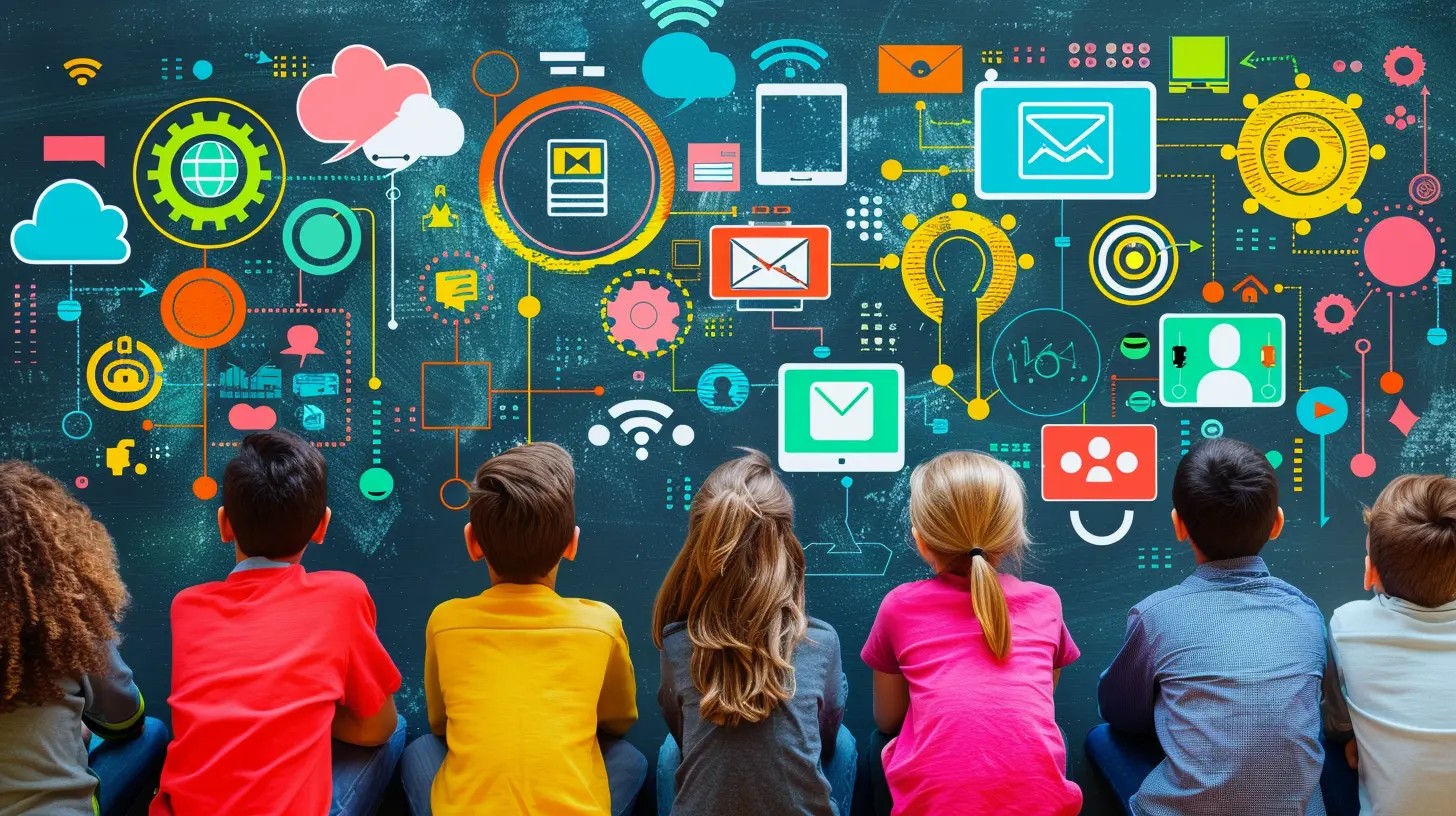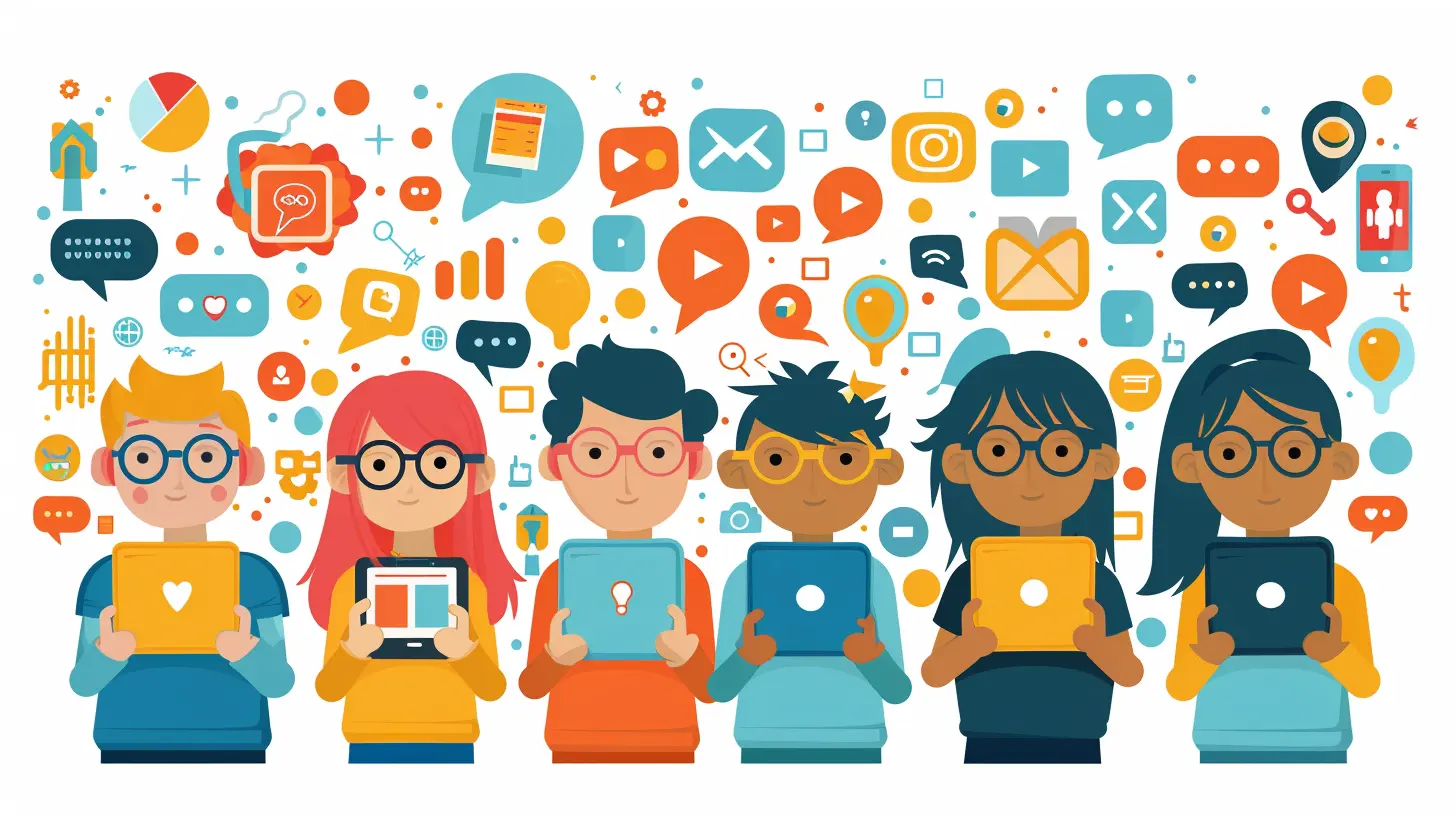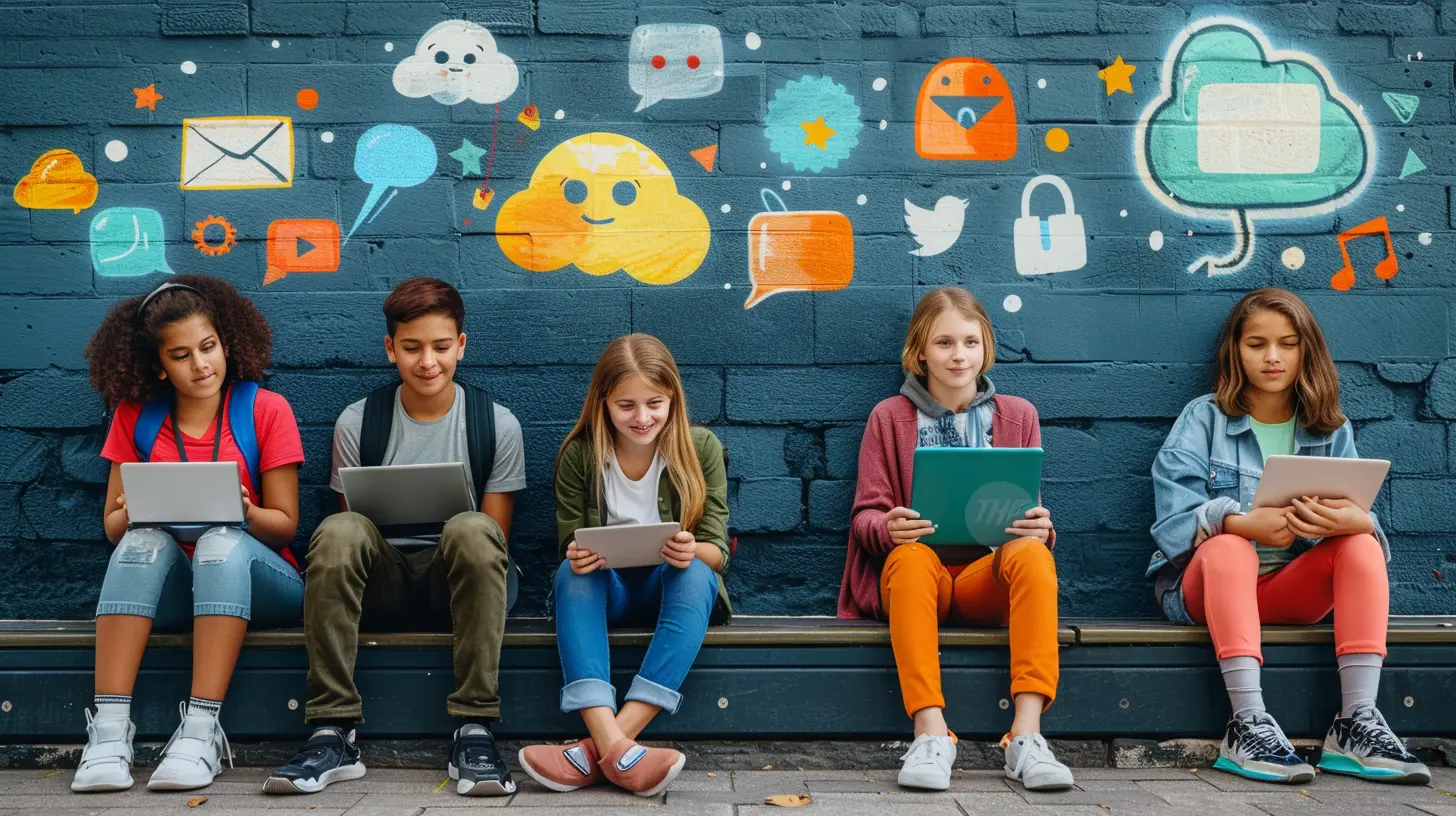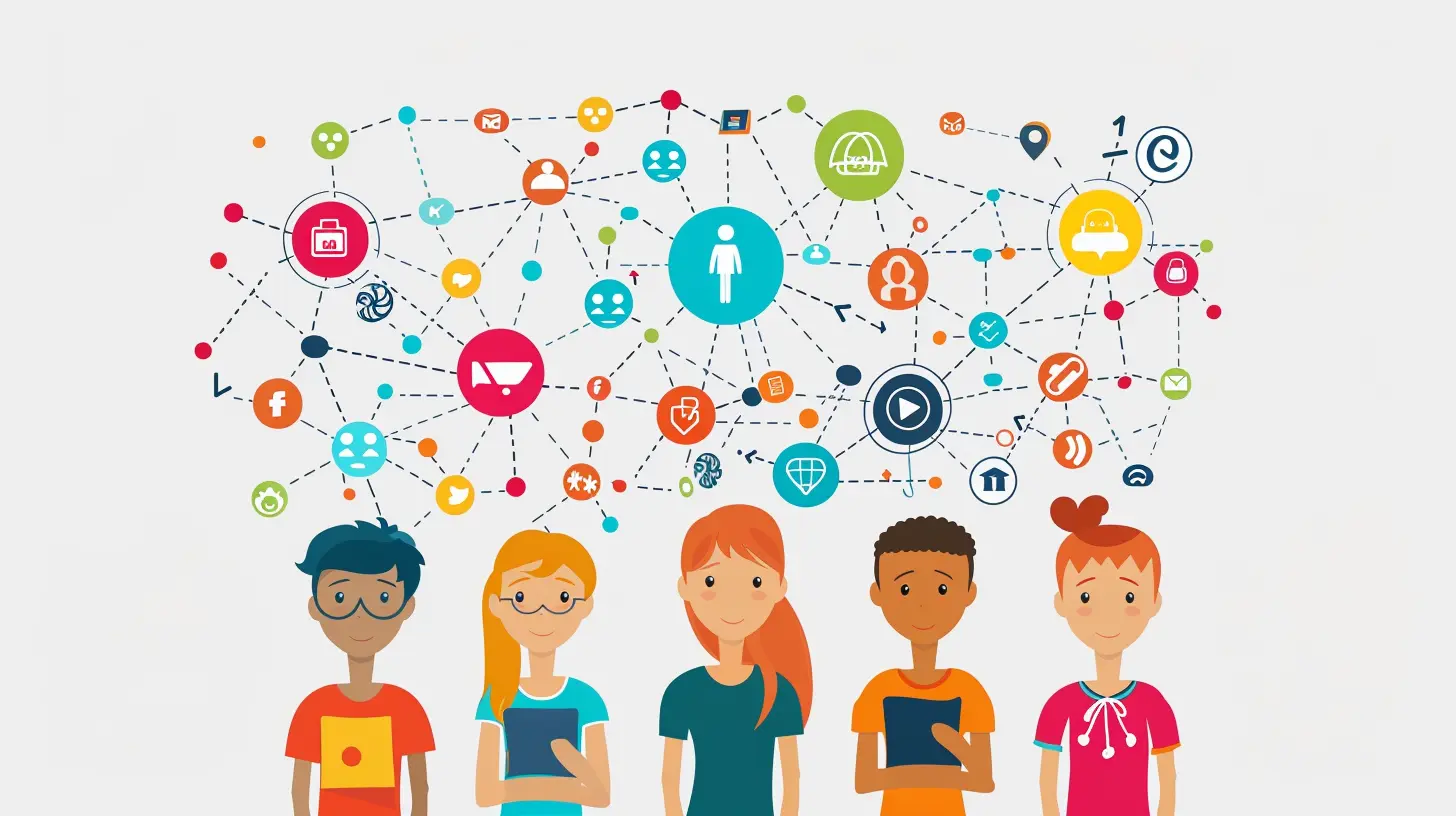The Power of Social Media as an Educational Tool
23 May 2025
Social media has completely transformed the way we communicate, share ideas, and consume information. But did you know it’s also shaping the future of education? Gone are the days when students relied solely on textbooks and classroom lectures. Today, platforms like Facebook, Twitter, LinkedIn, Instagram, and even TikTok are being used as dynamic learning tools.
With millions of people actively using social media daily, it has become a powerful medium for students, educators, and institutions to exchange knowledge in creative and engaging ways. But how exactly does social media contribute to learning, and what benefits does it offer? Let’s dive in!

How Social Media Enhances Learning
1. Access to Unlimited Information
Think about it—back in the day, if you wanted to research a topic, you’d have to visit a library, sift through multiple books, and take notes manually. Now, with a simple search on YouTube or Quora, you can instantly find detailed explanations, live demonstrations, and even expert opinions.Social media serves as a never-ending library packed with articles, blogs, podcasts, and videos on virtually any subject. Whether it's a new mathematical concept or historical event, platforms like Twitter and Reddit offer real-time discussions that enhance understanding.
2. Encouraging Collaborative Learning
Social media fosters collaboration like never before. Whether through Facebook study groups, LinkedIn learning communities, or WhatsApp group chats, students can easily connect with peers and educators to exchange ideas, clarify doubts, and work on assignments together.Imagine preparing for an exam and getting stuck on a tough physics problem. Instead of waiting for the next class, you can post your query in a student group and get instant responses from classmates or even experts in the field. It's like having a 24/7 virtual classroom!
3. Interactive and Engaging Learning
Let’s be honest—traditional lectures can sometimes be dull. But social media brings an interactive twist to learning. Platforms like Instagram and TikTok are filled with bite-sized educational content that makes learning fun and engaging.From short science experiments demonstrated in videos to bite-sized history lessons in Instagram reels, social media keeps learners entertained while delivering valuable information. Who said education had to be boring?
4. Real-World Application and Exposure
Social media connects students with real-world professionals and industry experts. Take LinkedIn, for example—it’s not just a job-hunting platform; it’s a goldmine for networking with mentors, joining professional communities, and gaining insights into different career paths.Many educators and influencers also share practical industry trends, case studies, and success stories that help students bridge the gap between theory and practice.

The Role of Social Media in Modern Education
1. Social Media as a Teaching Tool
Teachers are now incorporating social media into their lesson plans to make learning more interactive. Platforms like YouTube are widely used for educational tutorials, while Twitter is great for discussing current events.Some educators even host Q&A sessions on Instagram Live or create discussion threads on Reddit to encourage students to engage in thoughtful debates. This not only makes learning more dynamic but also promotes critical thinking and communication skills.
2. Online Courses and Skill Development
With platforms like Coursera, Udemy, and LinkedIn Learning sharing their content through social media, acquiring new skills has never been easier. Social media-driven courses allow learners to access high-quality education from top institutions and industry experts at their own pace.And it's not just limited to academic knowledge—skills like digital marketing, graphic design, and coding are now being taught through social media channels, expanding learning beyond the traditional classroom.
3. Boosting Student Engagement
Schools and universities are also leveraging social media to keep students engaged. Many institutions share important announcements, updates, and educational content through their social media handles, making it easier for students to stay connected.Additionally, students are motivated to participate in educational challenges, discussions, and even virtual events that keep them actively involved in learning.

Pros and Cons of Using Social Media in Education
Like everything, social media in education comes with both advantages and challenges.Pros:
✔ Instant Access to Information – No need for extensive research; knowledge is just a click away.✔ Global Learning Community – Connect with educators and students worldwide.
✔ Encourages Creativity – Engaging formats like videos, infographics, and podcasts make learning enjoyable.
✔ Flexible Learning – Students can learn at their own pace anytime, anywhere.
✔ Career Opportunities – Networking with professionals and gaining valuable insights from industry leaders.
Cons:
✘ Distraction – Social media can be addictive, leading to time wastage.✘ Misinformation – Not all information on social media is accurate; students must verify sources.
✘ Privacy Concerns – Sensitive personal data might be at risk if not handled properly.
✘ Cyberbullying – The online world is not always friendly, and students may face negativity.
Despite these drawbacks, with the right guidance and responsible usage, social media can be a game-changer in modern education.

Tips for Using Social Media as an Educational Tool
To make the most of social media in learning, here are some practical tips:🔹 Follow Educational Pages – Subscribe to pages or groups that share quality educational content.
🔹 Engage in Meaningful Discussions – Participate in groups that promote intellectual discussions.
🔹 Use Social Media for Research – Explore platforms like Reddit, LinkedIn, and Quora for detailed insights.
🔹 Limit Distractions – Set a time limit for educational social media use to avoid unnecessary scrolling.
🔹 Verify Information – Always cross-check facts before accepting them as truth.
Social media can be an incredibly powerful educational tool when used wisely. It's all about balance—using it to learn, engage, and grow while avoiding the pitfalls of aimless browsing.
Final Thoughts
Social media is no longer just for entertainment and scrolling through memes. It has evolved into an exciting space where education meets innovation. Whether you're a student looking for quick explanations, an educator aiming to keep lessons engaging, or an institution promoting digital learning, social media holds infinite possibilities.By embracing social media as an educational tool, we can make learning more accessible, collaborative, and enjoyable. So, the next time you scroll through your favorite platform, consider using it to gain knowledge alongside entertainment. Who knows? Your next big learning breakthrough might just be a tweet away!
all images in this post were generated using AI tools
Category:
Educational TechnologyAuthor:

Zoe McKay
Discussion
rate this article
3 comments
Kara Valentine
Embrace social media's potential; it can transform learning and connect us like never before!
June 17, 2025 at 10:22 AM

Zoe McKay
Thank you! Absolutely, social media fosters collaboration and broadens access to knowledge, making it a powerful educational tool.
Faenor Matthews
Social media in education: where cat memes meet calculus and learning gets a funny filter!
May 31, 2025 at 11:19 AM

Zoe McKay
Absolutely! Social media can make learning more engaging and relatable, combining humor with education to enhance understanding and retention.
Katherine Nelson
Who knew emojis could double as educational critters? 🐢📚 Social media isn’t just for cat videos—it’s a treasure trove of learning! Let's sprinkle some hashtags in the classroom and watch knowledge go viral! 📈✨ #EduMagic
May 23, 2025 at 10:57 AM

Zoe McKay
Absolutely! Social media is a dynamic platform for learning, and emojis add a fun twist to engage students. Let’s harness that creativity! 📚✨ #EduInnovate



